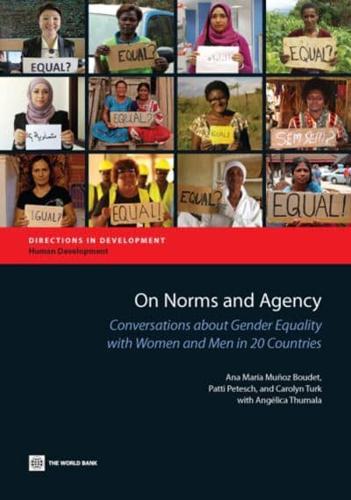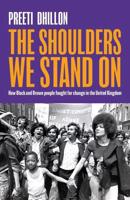Publisher's Synopsis
On Norms and Agency explores some of the power dynamics of gender relations within the household and communities in different contexts. These processes are analyzed from the perspectives of groups of men and women and boys and girls who participated in focus groups in 97 communities around the world. From gender differences and inequalities to intra-household decision making, more than 4,000 women and men in 500-plus single-sex focus groups reflected on how social norms that define what it means to be and act as a woman or a man affect their life outcomes and their access to opportunities. The analysis reveals not only how little gender norms have changed and how similar they are across countries, but also how change in norms and in individual empowerment and capacity to act and decide takes place. Change takes place at private as well as community and society levels -- and adjustments within one of these realms shape the pace and direction of change in the other. The process of gender-norm change appears to be uneven and challenging. The easy coexistence of new and old norms means that households in the same community can vary markedly in how much agency women can exercise; women feel less empowered when opinions and values of families and communities stay within traditional norms. This book seeks to understand the pathways toward greater gender equality by looking at the deepest constraints present for women and men alike. Unlike men, women are less dependent on the economic conditions of their environment. Men's power and agency are tightly intertwined with their identity and capacity as breadwinners. The main pathways for women to gain agency are education, employment, and decreased risk of domestic violence. A safer space encourages women to negotiate for more participation and equality in household discussions and decisions. Women's ability to contribute to family finances and to control (even partially) major or minor assets helps them gain more voice at home and in public spheres. Women's aspirations and empowerment to break gender barriers can be observed almost everywhere, even when economies are stagnant. These evident aspirations are partly due to women's perceptions of having more power and freedom in their lives and a greater ability to make decisions. Yet many women around the world, the study shows, still face norms and practices that limit them.












